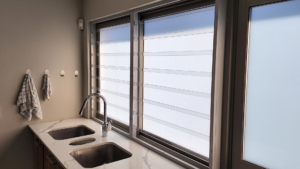Insurance is essential regardless of where you live as it ensures that your belongings will be protected in the event of there being damage to the dwelling. It can be challenging to differentiate between homeowners and renters insurance as they offer financial protection against the policyholders in case of property damage. We will unpack the differences between these two policies.
Homeowners insurance refers to insurance for people who own their home or apartment. Homeowners insurance covers the personal belongings in the home and the house’s structure. Renters insurance is insurance that tenants can purchase, and it covers any damage or theft of personal property. However, it does not cover any damage that might occur to the property itself.
The differences between homeowners and renters insurance
The major difference between homeowners and renters insurance is that homeowners insurance offers more coverage as it covers the structure, whereas renters insurance does not. Therefore, the two policies are essentially the same, meaning that you would not need to get both homeowners and renters insurance to cover your property at the same residence. For renters, in most instances, the landlord will have a separate policy that ensures that the house’s actual structure is covered against any unexpected events that might cause damage. Another significant difference between homeowners and renters insurance is that homeowners insurance is more expensive than renters insurance as it offers more coverage components.
Coverages
Renters insurance offers cover for any damage or loss that might occur to your personal belongings due to any event that is covered. Renters insurance will also provide coverage that extends beyond the personal property up to a specified limit. The insurance policy will offer personal liability coverage, which will compensate for the medical bills of anyone who might be injured on the residence. You will also receive financial compensation for any fees resulting from any accidents that might occur on the property leading to injuries. An example of the legal costs that you might incur is if someone had to sue you for spilling hot coffee on their lap while they were at your home. The legal fees you would incur while defending yourself would be covered as well as the damages from the legal proceedings. Renters insurance also offers additional living expenses if you could no longer live on the property due to the injury or while repairs were going on.
Homeowners insurance ensures that you also receive coverage for personal property, additional living expenses and personal liability. Additionally, you will also receive coverage against any damage that might occur to the building; however, this will depend on your policy details. The other aspect that homeowners insurance provides cover for is the structure. If a covered loss were to occur, such as storms or hail, if the claim is approved, you would receive financial compensation for any repairs that might need to take place.
There are some similarities in the things that the two insurance policies offer cover against, and these covered perils include:
- Theft
- Fire and lighting
- Explosions
- Vandalism
- Falling objects
- Windstorm and hail
- Smoke damage
- Freezing of plumbing, air conditioning, heating
- Leakage or overflow of water
Exclusions
Since renters insurance does not cover any damage that occurs to the structure of the home, it will never cover any damage that happens to your personal property. Some exclusions apply to renters and homeowners insurance, such as damage resulting from floods, earthquakes, maintenance issues, pest infestations, wear and tear, or negligence. If your personal property were damaged in these situations, the renter’s policy would not pay to repair. The policy also would not cover the costs of additional living expenses if you were kicked out of the property while it is being repaired.
For homeowners and renters to ensure that they are covered against some usual exclusions, such as damage caused by floods and earthquakes, they would need to add coverage for those issues. This would be recommended, especially if you live in areas that are at high-risk for flooding or earthquakes. You can also choose to buy standalone flood insurance or earthquake insurance policies . If there were a flood or earthquake and you have the necessary policy or coverage against these events, you would receive coverage for damage that might occur to your TVs, furniture or any of your personal property as a result of the disasters. You also wouldn’t need to pay to live elsewhere if repairs were being conducted as the policy or additional coverage would cover that.
Conclusion
Renters and homeowners insurance is intended to assist you in recovering financially if you lose anything during a disastrous event. There might be differences between these policies, such as the cost and cover for the home’s structure. However, it also offers customisable coverage options that enable you to protect yourself from disasters that insurances might not usually cover, such as floods and earthquakes, which might be helpful if you live in areas prone to these disasters.
See the 6 Top Tips on Creating a Home Inventory List for Insurance.



